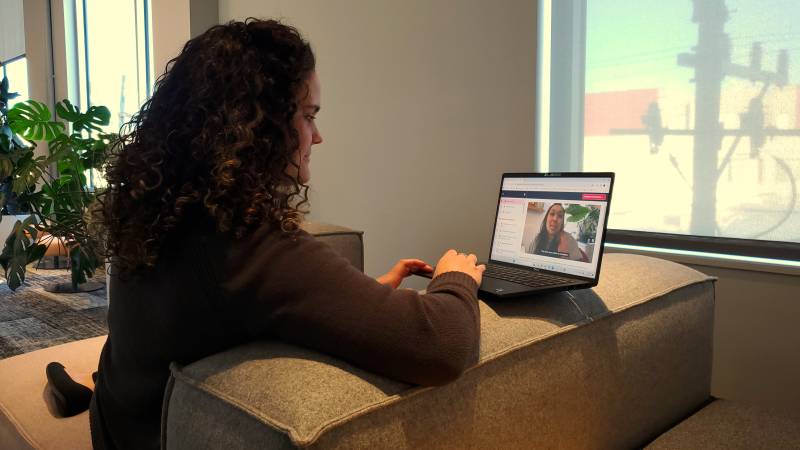Responding to the growing need for media literacy instruction for K-12 students, KQED is making it easier for teachers across the country to develop their media literacy skills and get credit for it. KQED has partnered with the University of San Diego and Teachers College of San Joaquin to make graduate units available to educators who complete media literacy courses on KQED Teach, a free online learning platform.
Media literacy instruction is increasingly becoming an embedded component of curriculum across subject areas. In California, Assembly Bill 873, signed by Gov. Gavin Newsom in October 2023, requires that all K-12 students learn media literacy skills. And similar bills have passed or are in front of other states’ legislatures. “Media literacy should be added to state standards everywhere,” says Belinda Shillingburg, a high school English teacher in Tennessee. “Students have been content creators for several years now, but there’s a huge gap between creating TikTok dance videos and generating academic work product that teaches them to master skills tied to all four content area domains.”
KQED Teach shows educators how to teach foundational skills that help students become critical consumers of online media, skills like spotting misinformation and AI deep fakes, evaluating sources and analyzing media messages. Free online courses also cover making media—like videos, podcasts or infographics—for instructional purposes and to empower youth voice and choice. Common Sense Education calls KQED Teach a “super PD resource,” and it’s on the California Department of Education (CDE) list of recommended media literacy training.
As a result of this new accreditation program, educators can now submit their course completion certificate with a small per-unit fee to receive graduate units from either the University of San Diego or the Teachers College of San Joaquin, regardless of what state they live in. Depending on district and state policies, teachers may then use these graduate units to meet professional development requirements, advance their career and increase their salary.
“For districts and teachers, these graduate units help connect the dots between the intention of new legislation and practical application in teaching,” says Michelle Parker, Executive Director of Education at KQED. “It can be hard to prioritize learning something new if there isn’t a familiar structure to support that investment of time. This partnership makes it possible for educators to get ahead of new expectations and be rewarded for it.”
